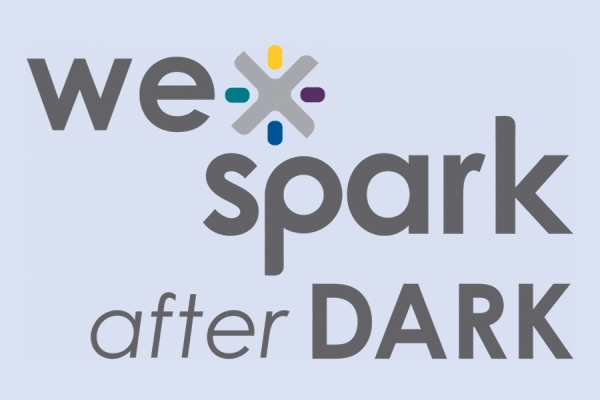Join the growing Windsor-Essex health research community at WE-SPARK After Dark Networking Event Connect with the dynamic and expanding network of health researchers at WE-SPARK Health Institute’s monthly networking event. This is a great opportunity to engage with others passionate about health research through both casual conversations and structured networking. WE-SPARK After Dark takes place from 5–7 p.m. on April 3rd at Bourbon Tap & Grill, 1199 Ottawa St., in Windsor. Whether you're an active member of the health research community or simply curious to learn more, this informal gathering provides a welcoming space to build meaningful connections. The first hour will focus on meeting like-minded individuals with an interest in health research. Registration is encouraged but not required—feel free to bring a friend or colleague you’ve been wanting to connect with. Click here to register.

Fueling Innovation: WE-SPARK Health Institute Launches 2025 Grant Call WE-SPARK Health Institute is pleased to announce the launch of its 2025 Igniting Discovery Grants Program, aimed at fostering early-stage, innovative health research and education projects in Windsor-Essex. These grants provide crucial funding to support research across all health domains. In addition to the core Igniting Discovery Grants, researchers may also apply for specialized funding opportunities sponsored by community and institutional donors, including: Black Scholars Institute Health Research Grant (Black Scholars Institute, University of Windsor) Brain Tumour Research Grant (Connecting for a Cause Community Group) Cancer Research Collaboration Fund Grant (Play for a Cure/Cancer Research Collaboration Fund) Childhood Cancer Research Grant (ChildCan) Hematopoietic Stem Cell Transplant Research Grant (Katelyn Bedard Bone Marrow Association) Seeds4Hope Grants (Windsor Cancer Centre Foundation) Tayfour and Emara Research Grant (Dr. Fouad Tayfour & Dr. Barry Emara University of Windsor…
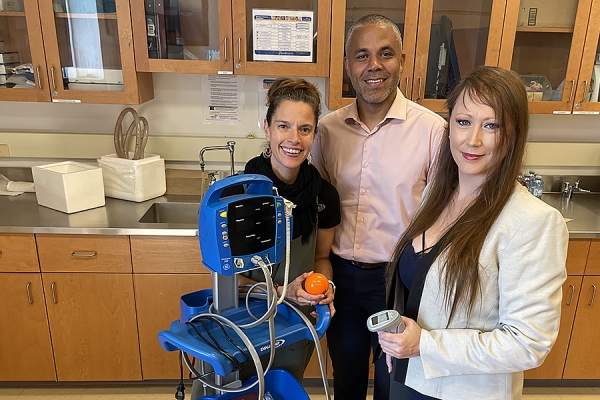
Study seeking volunteers to explore prevention and treatment of high blood pressure among Black populations Kinesiology professors Cheri McGowan, Kevin Milne, and Paula van Wyk are conducting research on isometric handgrip training as a treatment for high blood pressure among Black populations. One in five people has high blood pressure or hypertension, increasing their chances of heart disease and even death. Black populations are at an increased risk of having high blood pressure, and of having more severe complications. Yet individuals who identify as Black remain under-represented in research for high blood pressure. WE-Spark core principal member Paula van Wyk and her co-investigators in the Department of Kinesiology, Cheri McGowan and Kevin Milne, invite interested individuals to volunteer as a participant exploring the effectiveness of isometric handgrip exercise as an approach to preventing and treating high blood pressure among Black populations. They are looking for volunteers to come to the Physical Activity & Cardiovascular Research Laboratory in the Human Kinetics Building to complete…
March networking event to bring together Windsor-Essex Health Research Community Connect with the dynamic Windsor-Essex health research community at WE-SPARK Health Institute’s monthly networking event. This is a great opportunity to engage with others passionate about health research through both casual conversations and structured networking. WE-SPARK After Dark takes place from 5–7 p.m. on Thursday, March 6, at Bourbon Tap & Grill, 1199 Ottawa St. Whether you're an active member of the health research community or simply curious to learn more, this informal gathering provides a welcoming space to build meaningful connections. The first hour will focus on meeting like-minded individuals with an interest in health research. Registration is encouraged but not required—feel free to bring a friend or colleague you’ve been wanting to connect with. Click here to register.
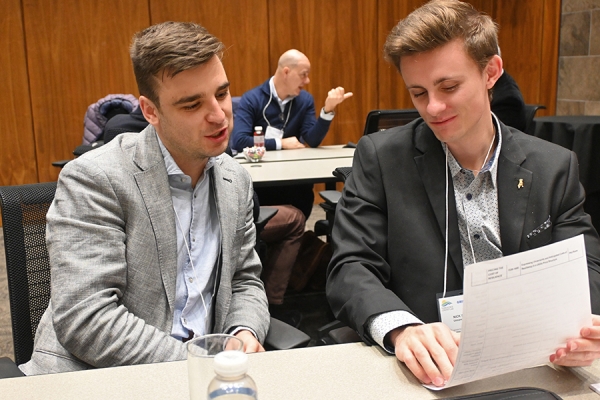
Exploring electrical outages earns opportunity for engineering undergrads Second-year engineering students Josh Martin and Nick Schembri presented their research into vulnerabilities in the electrical grid at a workshop last week. Nick Schembri and Josh Martin, students in the Department of Mechanical, Automotive, and Materials Engineering, were eager to get research experience early in their university careers. The two began working with professors Rupp Carriveau and Jacqueline Stagner in their first year of study and now, in just their second year, had the opportunity to present their findings before a room filled with industry leaders and academic experts. The students were tasked with investigating North American grid outages and how the electrical grid is impacted at the neighborhood transformer level by new and disruptive loads. They were responsible for measuring grid vulnerability and providing a comprehensive analysis of their findings and writing journal papers. “The students were given a significant responsibility early on, and they rose to the…
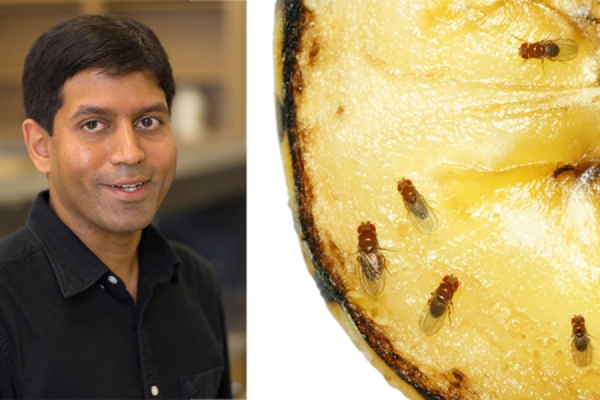
Research chair to support exploration of neural disorder Biomedical science professor Jeff Dason is the Faculty of Science research chair. The Faculty of Science has named Jeff Dason as its 2024-2026 research chair. “I’m thrilled to receive this chair, as it will allow me to further expand my research program,” says Dr. Dason. The associate professor in the Department of Biomedical Science started at the University of Windsor in 2017. The award comes with a two-year grant of $40,000. The new position will allow him to further develop his research into the nervous system disease, Fragile X syndrome (FXS). “Fragile X Syndrome is a heritable neurodevelopmental condition that affects one in 3,000 to 6,000 individuals and is the leading contributor to intellectual disability and autism,” he says. “FXS is characterized by altered synaptic structure and function that results in various behavioural effects, including cognitive deficits.” No effective treatments for FXS currently exists even though the underlying cause of many of its symptoms…
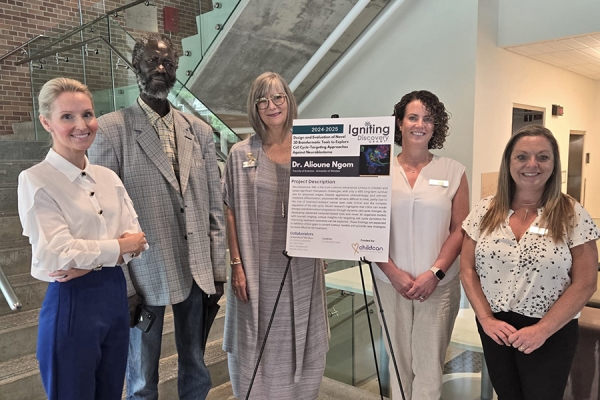
Treatment of childhood neuroblastoma target of research project Celebrating a project to improve treatment of a childhood cancer are UWindsor researchers Dorota Lubanska and Alioune Ngom with ChildCan officials Suzanne Elliott, Sarah Dimitropoulos, and Lorraine Jewell. Using a combination of cutting-edge tools from biology and computer science, a Faculty of Science led research project will explore ways to improve treatment outcomes for the extracranial childhood cancer neuroblastoma. “In the neuroblastoma tumour, we know there are populations of cancer stem cells, immature cells that drive the aggressiveness and therapy resistance, and our lab focuses on the biology of those cells — especially cell cycle regulation,” says biomedical science’s Dorota Lubanska. “With this project we will be addressing different aspects of therapy resistance by collaborating with computer science.” Biomedical science researchers will grow novel 3D organoid models, or tumours, in a dish, with live-cell imaging. The study will focus on understanding cell cycle…
Join the Windsor-Essex Health Research Community at WE-SPARK After Dark Connect with the vibrant Windsor-Essex health research community at WE-SPARK Health Institute’s monthly networking event. It’s an excellent opportunity to meet others passionate about health research through casual conversations and formal networking opportunities. WE-SPARK After Dark runs from 5-7 p.m. Thursday, February 6, at Bourbon Tap & Grill, 1199 Ottawa St. Whether you’re already part of the health research community or just curious to learn more, this event offers an informal and enjoyable way to make meaningful connections. The first hour will focus on getting to know like-minded individuals interested in health research. All attendees will have a chance to win two Health Research Conference tickets, a $450 value. Registration is encouraged but not required — bring a friend or colleague you’ve been wanting to connect with. Click here to register.
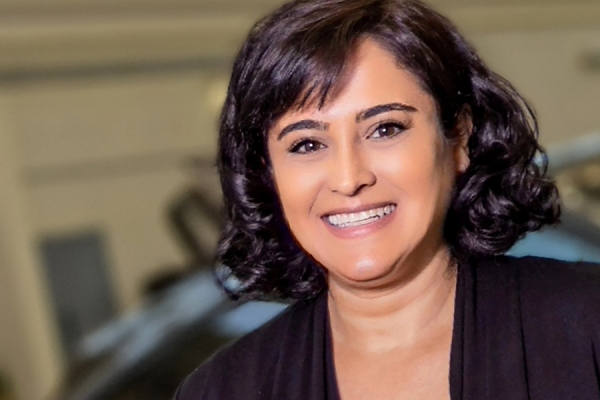
UWindsor researchers awarded $830,000 for quantum projects Engineering professor Mitra Mirhassani is one of the UWindsor researchers receiving a total of $830,000 in federal funding to support exploration of quantum science. Three University of Windsor professors have been awarded a total of $830,000 in federal funding to support their research into quantum science. Engineering professor Mitra Mirhassani, who specializes in automobile hardware cybersecurity, has been awarded $755,000 toward a project worth more than $5 million to develop secure cryptographic algorithms that can protect data from quantum cyberattacks. Fellow engineering professor Jalal Ahamed received $50,000 for a pair of one-year projects, one involving improved temperature monitoring of electric vehicle batteries and the other improving the high-precision sensing needed to make electronic devices work. Faculty of Science professor Drew Marquardt received $25,000 for a one-year project involving compact accelerator-driven neutron sources — an alternative to nuclear reactors…





